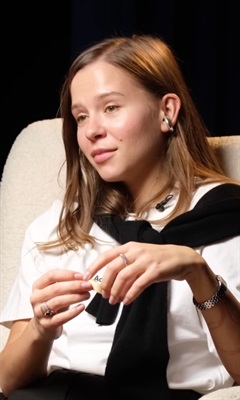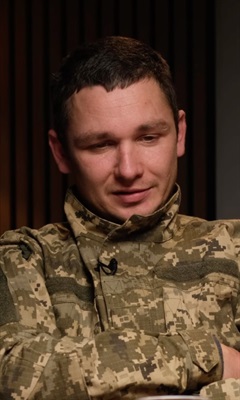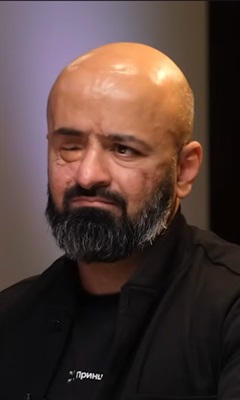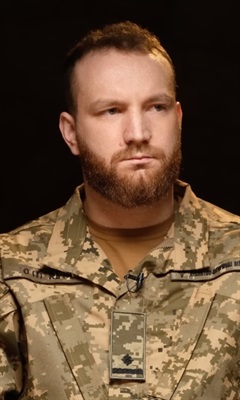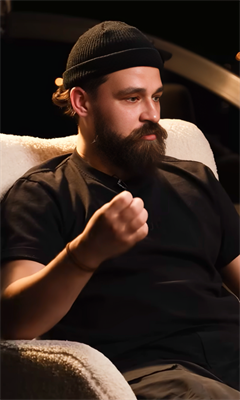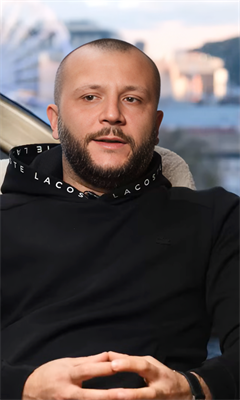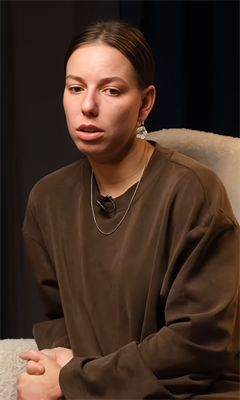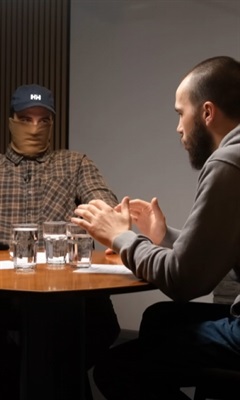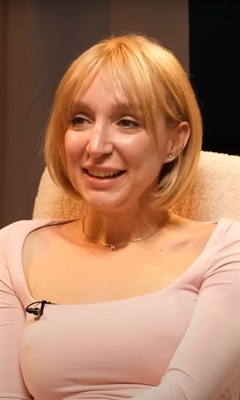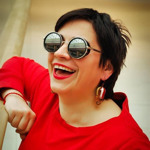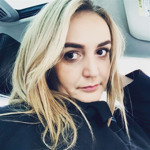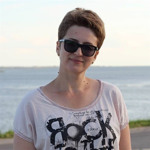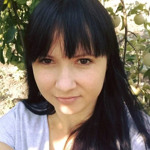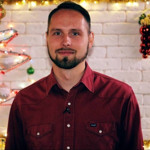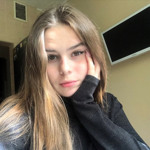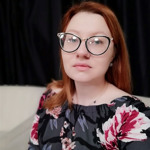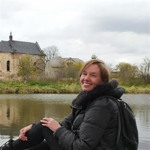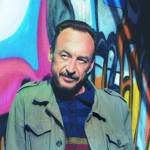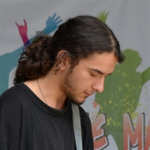These IDPs took their children and left for the EU. This is their actual experience of evacuation
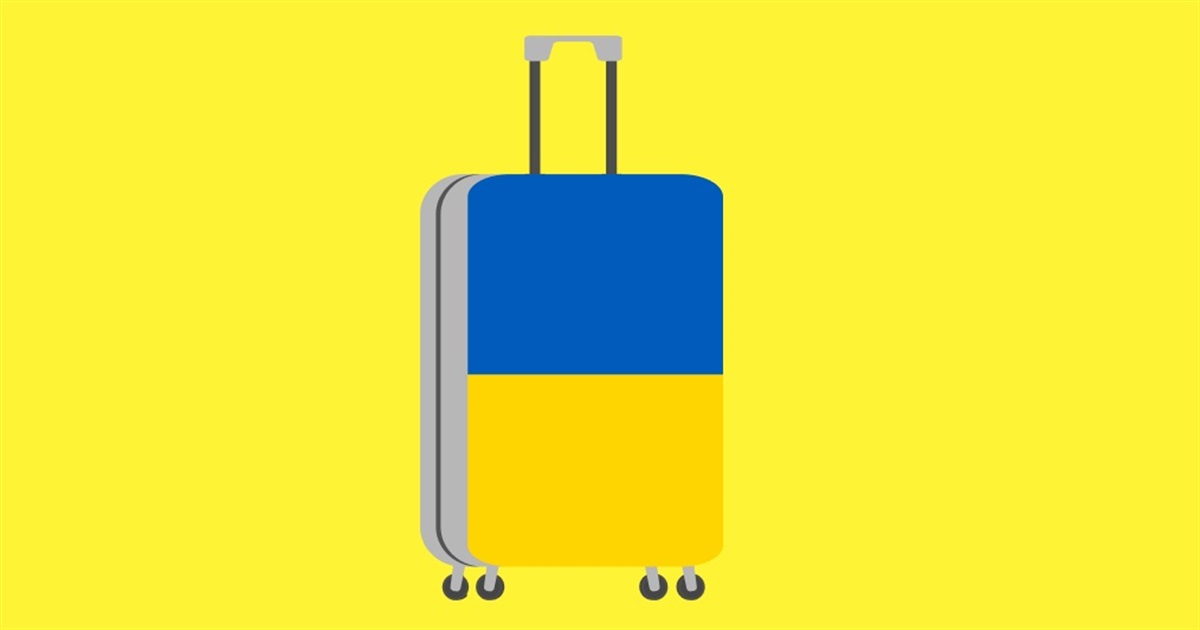
“I started volunteering in Romania. I help our people”
Anastasia, Makiivka – Chernivtsi – Lviv – Chernivtsi – Suceava
I was born and raised in Makiyivka. I met a young man from Chernivtsi. We got married, and in 2013 our daughter was born. A year later, to flee from the war, we moved to my husband’s home city, where his mother lives. I have been living in Lviv for the last year and a half, I have long wanted to move here. I am an online teacher of English.
When Russia started a full-scale war, at first I didn’t plan on going anywhere far. My daughter, my partner, and I came back to Chernivtsi. One day our friends called and said that they would drive to the Romanian border. They offered us to come with them. I agreed immediately.
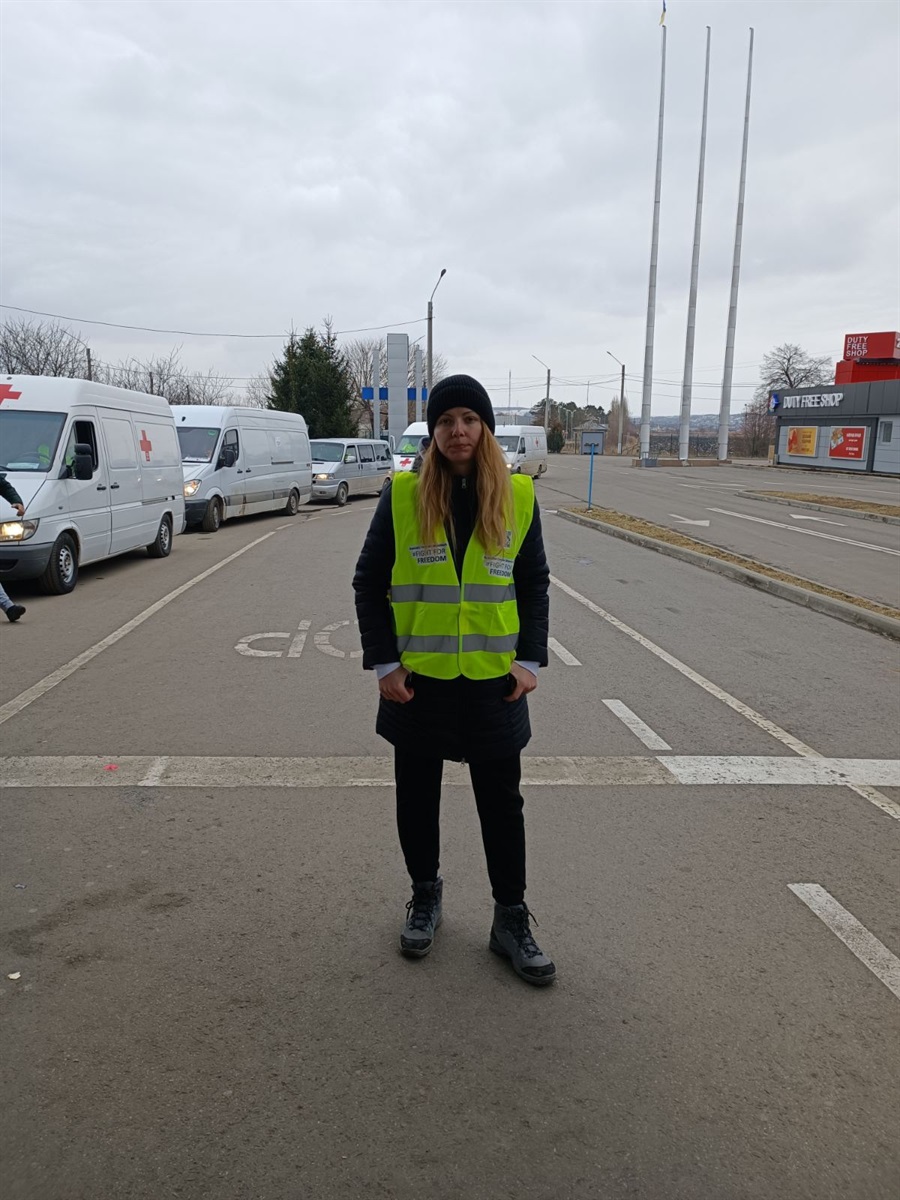 In Romania, Anastasia became a volunteer at the Ukrainian border
In Romania, Anastasia became a volunteer at the Ukrainian border
When we were on the border, near the crossing point of Porubne, our friends changed their plans and said that they would not go anywhere. I decided to go on and walked to the border with my daughter. Thanks to friendly relations, Petru, a volunteer, met us at the border. He accommodated us in his luxurious two-storied house in the city of Suceava. He lives there with his wife and their seven children. We were given a separate bedroom, welcomed as dear guests. They provide our food and drinks and refuse to take any money. Moreover, they have bought me winter boots and pants. They wouldn’t accept any money for the clothes either.
During the first days, my despair was mixed with the desire to go back home. Then I learned that my uncle, a civilian, an elderly man, was shot dead near Volnovakha. He went to the occupiers to tell them not to destroy the houses of peaceful civilians. This piece of news got me off the rails. I was sitting in our room for two days without drinking or eating. I didn’t want to see anyone. And when Petru suggested I could work at the border, I agreed. I speak English as well as Ukrainian and Russian.
Now I am working at the border as an interpreter. I also help people with their documents, give them information and explanations. I try to share useful information on social networks whenever possible. In a word, I help as much as I can.
A church accepted us in the capital of Poland, but we decided to go to Berlin
Nadiia Soboleva, Donetsk – Kyiv – Warsaw – Berlin
When the war started in 2014, we left Donetsk during the first week. I suppose we went on a hunch, not thinking or considering anything. It is different this time. I have almost no emotions, everything is kind of frozen inside. There is this great dream of victory and a desire to help those in need and on the front lines. We had a small shelter in the hallway of our apartment. The windows were taped, the doors to the rooms were closed. During the air raid, everyone got together on the floor, on the mattress, and prayed.
I still felt hopeful till March 2. And in the evening, my 11-year-old son Liova and I were already in Lviv. This was the decision of my beloved husband. Dima could go with us, of course, my husband has an exemption, but my sweetheart decided that he would be more useful at home. I am enormously proud of him!
I have always said that I could follow him till the end of the world, and now I am going there without him. This is extremely painful. I feel fear for him, guilt for my leaving, responsibility for Liova, and joy for being safe. During these 12 years, we have never parted for more than two weeks. I pray and dream of meeting him on peaceful grounds.
On March 4, we arrived in Warsaw. The bus trip from Lviv to Rzeszow took us 9 hours. Then we spent two hours at the station and traveled for another 6 hours by train to Warsaw. We spent a long time at customs.
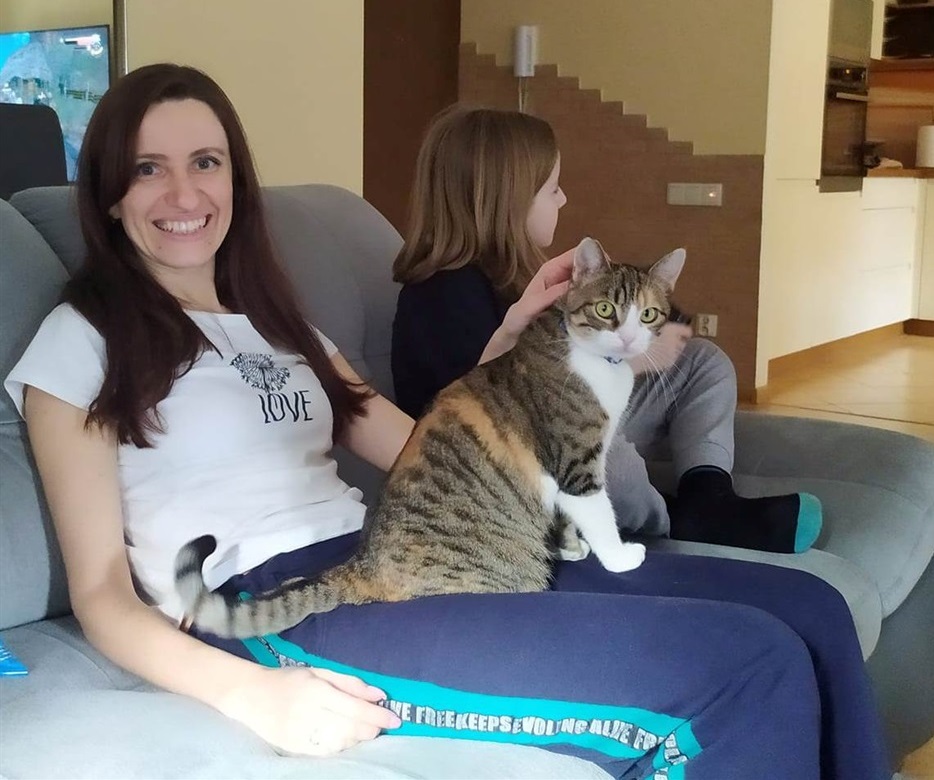
There were even more volunteers at the Rzeszow station: hot food, personal hygiene products, a room where mothers with babies could lie down, informational support. We took a free train to Warsaw. Piotr Vdovukhin, a brother from our church, met us there. As always, the church helps and supports people. The Christians of Poland and the entire Europe answer their questions, explain how to get somewhere, meet people at stations, look for accommodation in the 24/7 mode. This is love and care in action. Last week, I received several invitations to come and stay.
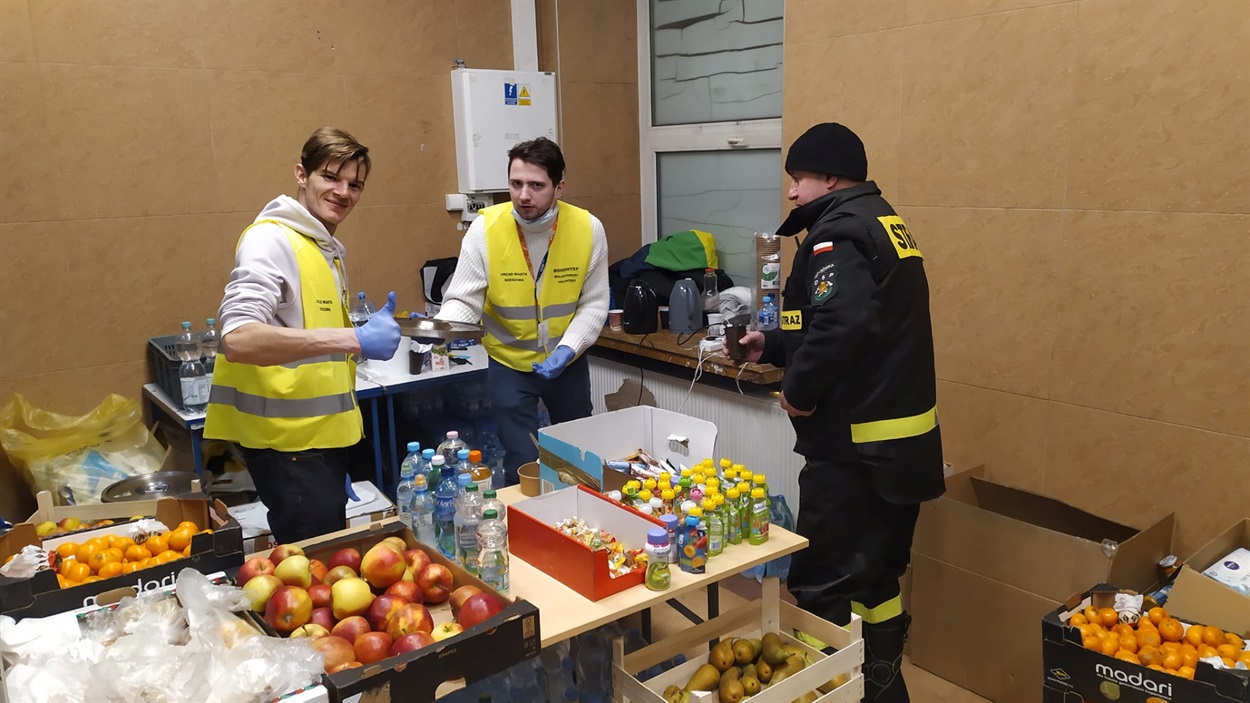 At the Rzeszow station
At the Rzeszow station
Petia met us, showed us what was where at the station, and left us there while they were looking for a place for us. We were a large group of seven adults and five children. Finally, everyone went to different volunteers’ families. Our guys from the church don’t have any room left anymore.
Polish people are incredible. They are ready to welcome absolute strangers in their homes. Liova and I were very lucky, we happened to be in a wonderful hospitable family of Raf and Eva. We have some communication problems, my English is poor, but Google Translate comes in handy. They take such great care of us: they feed, talk, help get a sense of direction in the city. I am full of gratitude, helplessness, and trust in God.
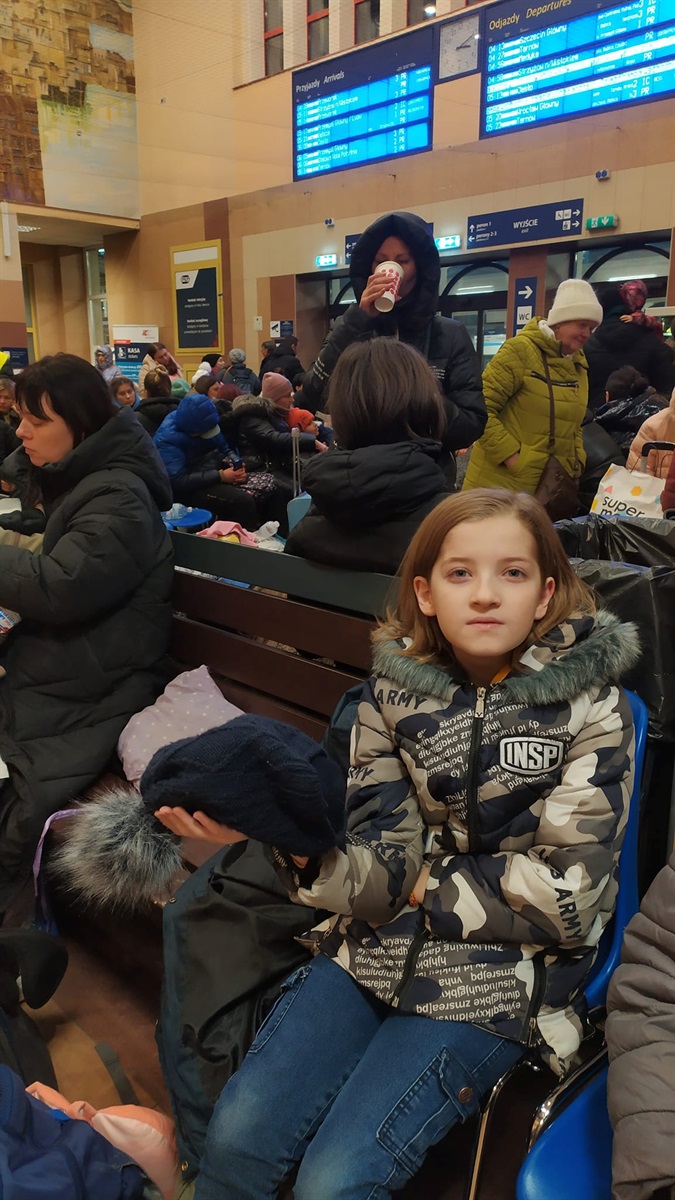 Liova, son, at the station during the evacuation
Liova, son, at the station during the evacuation
Sometime later, my son Liova and I decided to leave Poland for Germany. Our church is there, they are ready to take us in. They are a German family. The church has Russian-speaking people too, who have been living in Berlin for a long time. I assume the conditions in Germany will be better in terms of medical insurance, school, and work if we have to stay for long.
It took 20 thousand [hryvnias] for three people to get to the Netherlands
Svitlana Kostiukova, Donetsk – Kyiv – Amsterdam
We live in the center of Kyiv, near the train station, and it was clear since the first days of the war that our district would be under severe attacks. We decided to leave on March 2. For my husband to drive us to the border and come back seemed too risky an option. So we decided to go by train. I packed within two hours. Just threw all the important stuff on a pile and then sorted it into backpacks. We took backpacks deliberately as we knew there were crowds at the train station and at the border. And it is only me, with two little kids of 3 and 8 years old. My hands had to be free. So, we packed a backpack even for the youngest daughter. She was carrying hand wipes, a snack, and medicines. We put clothes into my son’s school bag in place of textbooks and copybooks. And the most important things were in mine – the money, the papers, and gadgets.
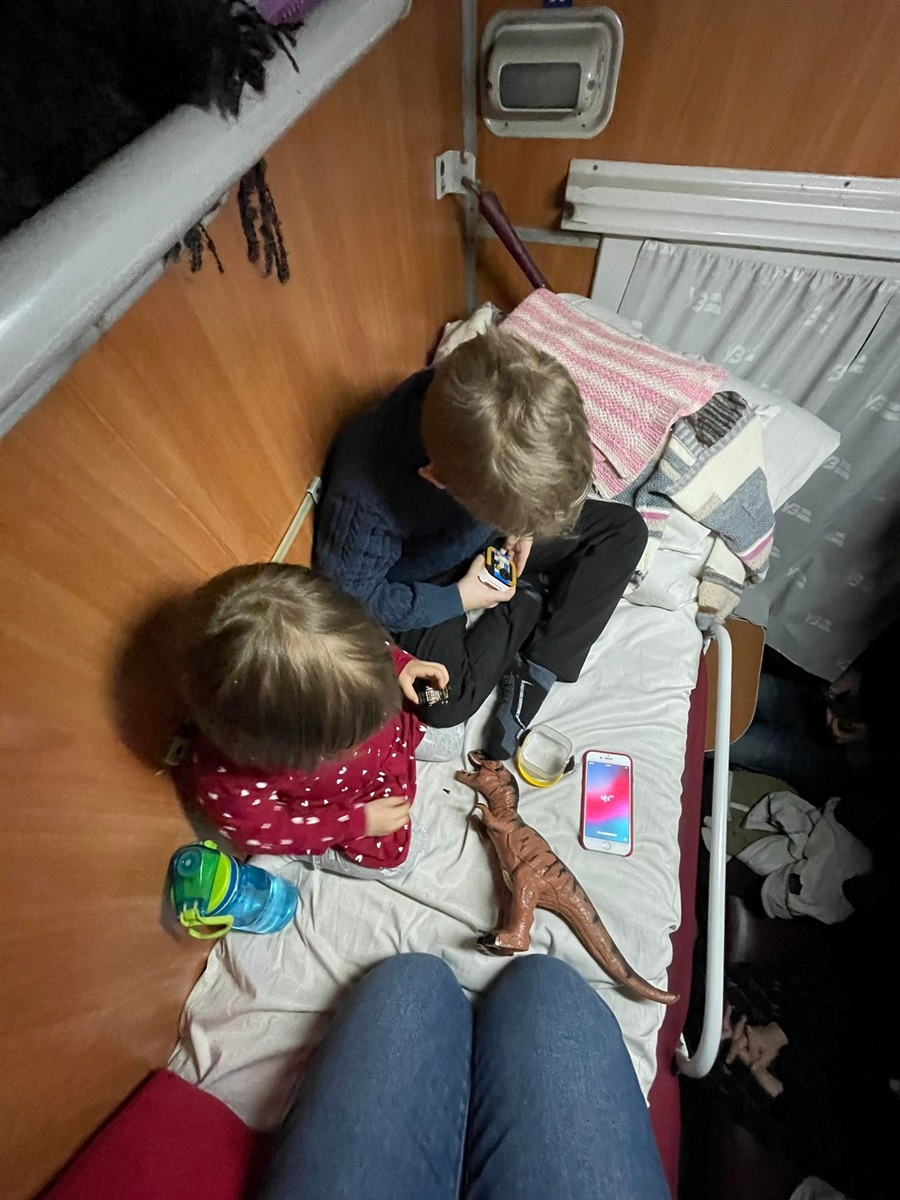
We decided to go straight to Europe as my son has allergic asthma. He needs treatment, and we order the meds for it from Europe. It is always worse in spring. I realized that if we stay, we will face difficulties both with medicines and medical assistance.
On the train, we were given an upper berth, where my kids and I spent almost 10 hours. There are no tickets for evacuation trains. You just get on free of charge, if you’re able to get in at all. The air conditioning doesn’t work, and it is very stuffy. Still, it was some special atmosphere. We were traveling with the Romani, students from Egypt, and Israelis.
My friends met us in Lviv. I didn’t want to burden them, but they insisted. And soon I understood why. There is a huge number of people at the Lviv train station! You leave the train and just try to find a place to put your foot in. Step by step. I assume there are even more people in the daytime, whereas we came at three in the morning. Friends advised me to go to Poland by bus. One ticket to Kraków cost 2,000 hryvnia. There is too much frenzy about free shuttles and commuter trains and there is a great risk of being trampled over by the crowd. My kids and I didn’t take this risk.
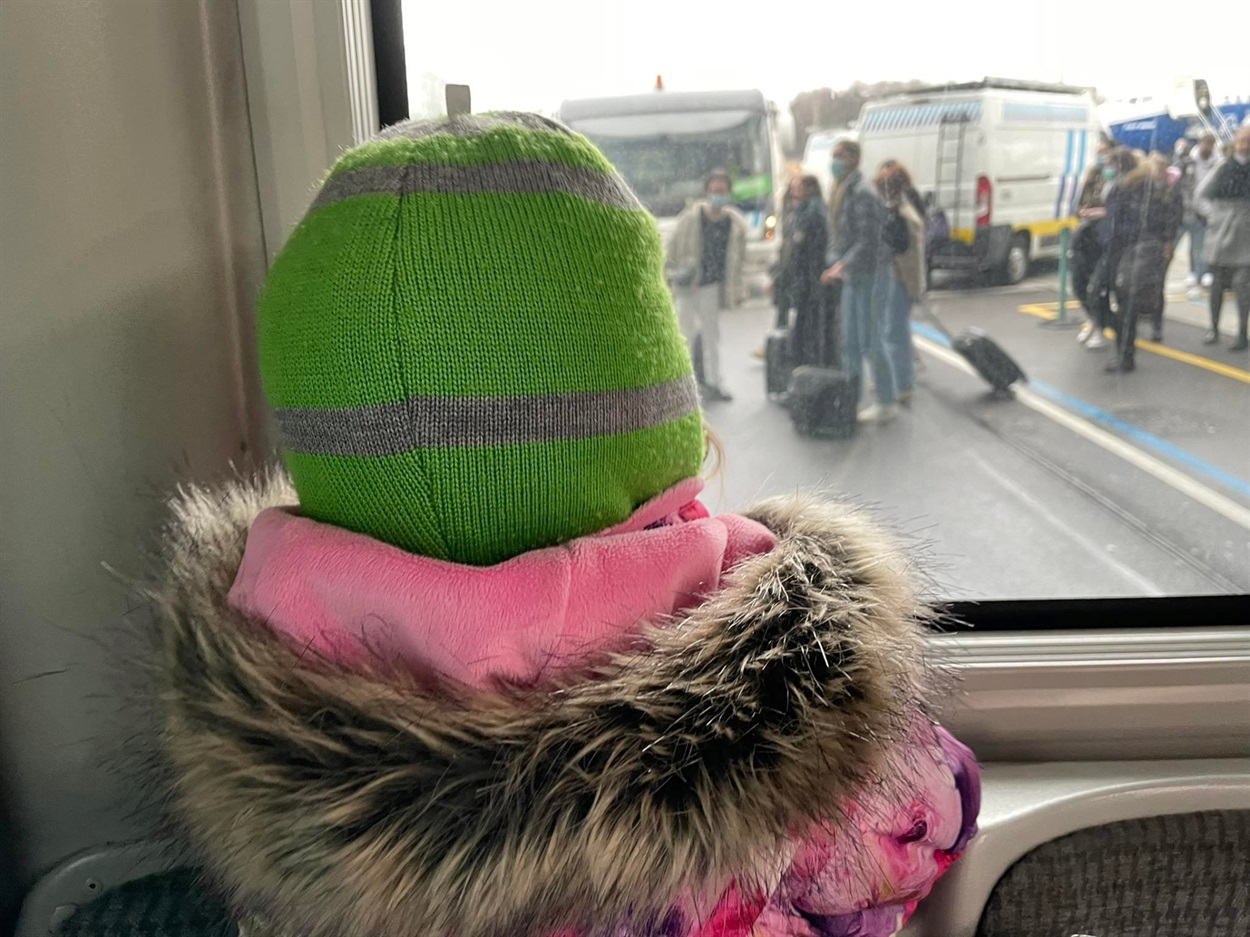
On March 3, we left sometime after 6 p.m. And it was only a little after 6 a.m. on March 4 that we arrived at the bus station in Krakow. We stayed at the border most of the time, for about seven hours. But we were sitting in a warm bus, while dozens of people were walking past. With bags. With little kids. At night. In frosty weather. We moved closer together and found some room in the bus for several mothers with children. Mothers were crying, while children got warm and fell asleep.
At the Ukrainian border, they checked our documents and let us pass. At the Polish border, they asked us to get out. It’s the procedure.At the checkpoint, the Poles gave us free food. It was very simple: tea, coffee, rolls, baby purees. There were also diapers and wet wipes. Considering the duration of passing the border, this aid comes in handy. Frankly speaking, there were some among our people who even complained that food could have been better. But they were rather an exception which is good.
At the Krakow bus station, there are waiting rooms, food, and assistance arranged for Ukrainians. But there are few people in these rooms. Nobody from our bus went there. We didn’t either. Our close ones from the Netherlands we were going to had found some acquaintances in Krakow to help us. A hospitable Beata took us from the station and brought us to her place to have some rest before the next leg of our journey. At 03:15 p.m., we had a flight to Eindhoven. I didn’t ask what Beata and her husband do in their normal lives. Right now, she and many of her acquaintances volunteer, helping the Ukrainians.
Our flight wasn’t cheap for us. A total of three Wizz Air tickets cost almost 14 thousand hryvnias. But it may have been because I bought them ten hours prior to the flight. In the airport, I had to deal with a not-so-friendly flight company employee at the registration desk. He was checking my COVID certificate for 20 minutes. He called someone. And he demonstrated distrust of my documents in every possible way.
We arrived in the Netherlands at about 6 p.m. We had to go by car for two more hours from Eindhoven to our destination in the suburbs of Amsterdam. But this time we were driven by our family. And it was finally peaceful. The relatives told us that when their neighbors heard that we were coming from Kyiv, they brought lots of children’s things and toys.
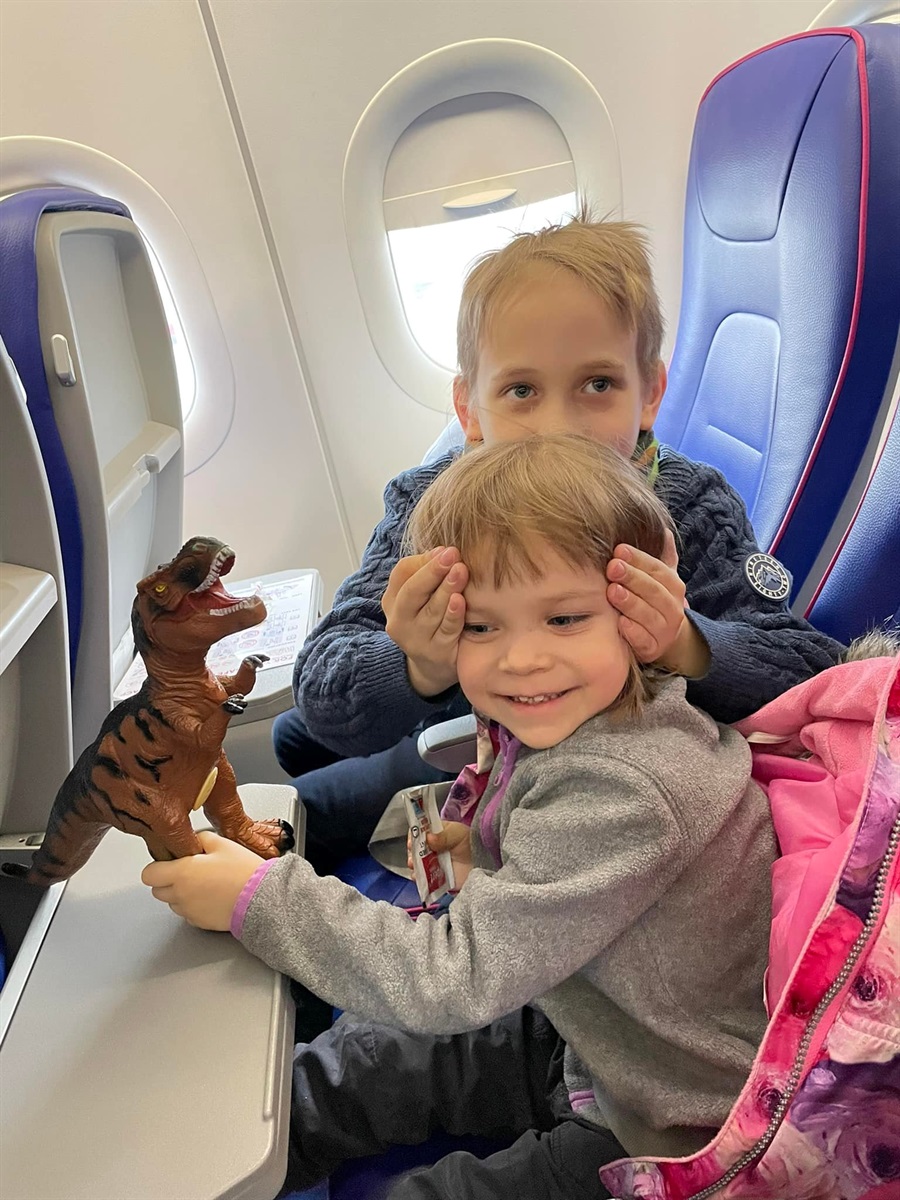
All in all, we spent about 20,000 hryvnias on this trip, and the entire trip lasted two days and a few odd hours.
It was most difficult to explain to the kids why they could sleep in their pajamas again instead of warm clothes, in case we had to hurry to the shelter. After that hell, after the state of constant slight inner shiver, there is sudden complete calm around you… A wake-up after a horrible nightmare. Windows without curtains. Light in the windows. Fresh bread. Food delivery. Shower without any hurry. Sleep with no warm clothes on. A good night’s sleep.
We were accommodated at the recreation camp. We can live here till the end of the war
Alina Kotenko, Luhansk – Kyiv – Muszyn
I left Kyiv with my 9-year-old daughter on February 25. My husband said that it would be easier for him to defend the city if we were not there and we were safe. At first, we planned on going by train, but at the last moment, my friend happened to have two spare seats in her car to Lviv. The distance from Kyiv to Lviv is about 550 km; it took us almost two days to get there. We were going along the Zhytomyr highway; in some areas, we could drive at literally 5 km per hour. All in all, in 14 hours we managed to make a little over half of this distance. We spent the night in a village in the Vinnytsia region, where my colleague’s father lives. Praise the Lord, we managed to get at least some rest, because many of those people in cars slept in their vehicles on the side of the road or at gas stations.
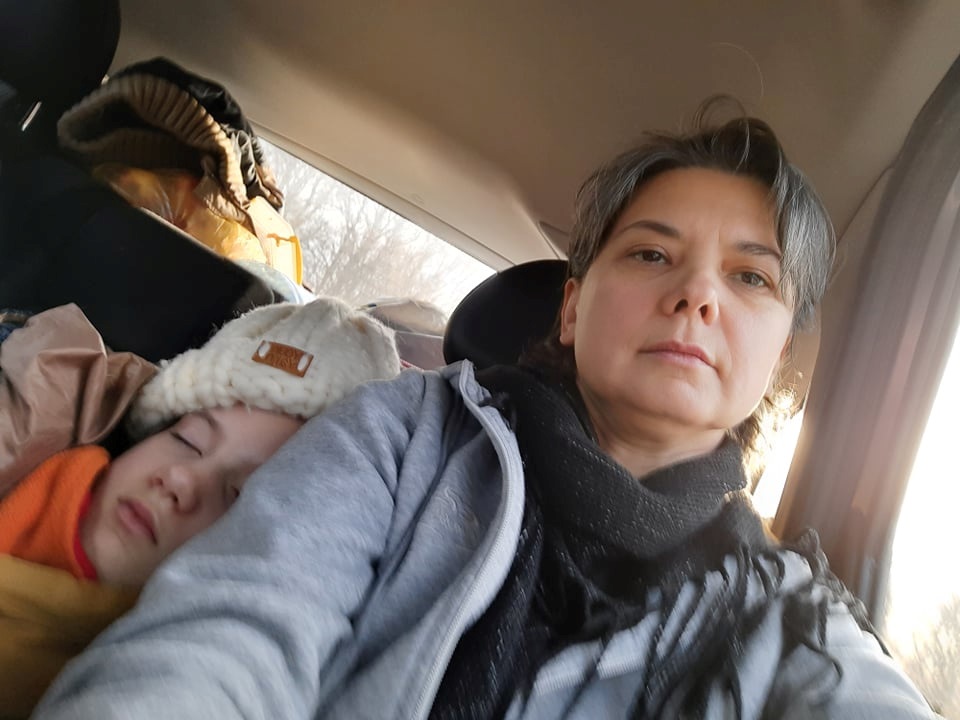
My daughter’s godfather lives in Lviv. We spent a night at his place, and the next day we decided to try and get on any train. We didn’t care where to go – to the Czech Republic or to Poland. And we were lucky. When we were standing in a line for the train to Poland, a young man came up to us and said that a train to another neighboring country would depart from Platform 5. We ran there quickly. There were people at the carriages, checking men’s documents, and if they were aged 18 to 60, they were not let in. Only women and children were allowed to board. So, thanks to this stranger we managed to get on the evacuation train.
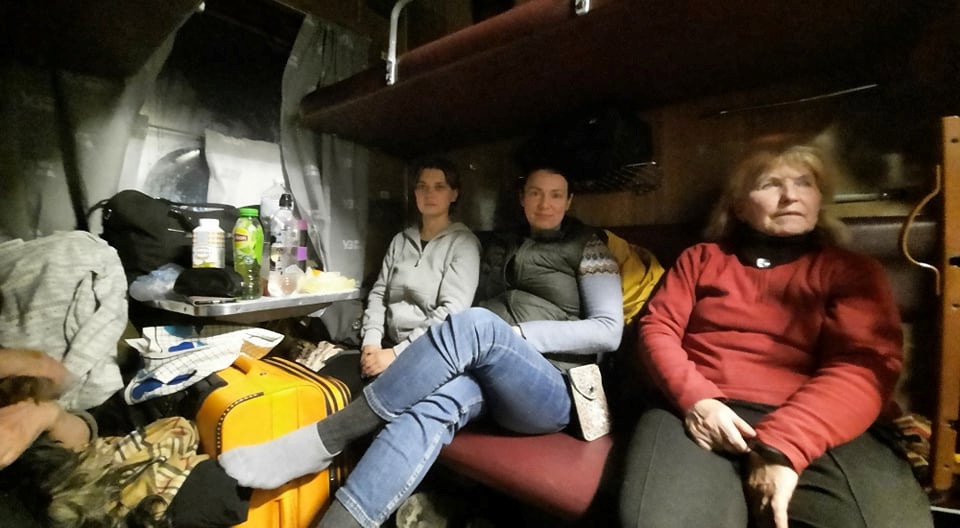
There were six adults and four children in our compartment. A crowd of people, many cats and dogs were packed in the corridor. The carriage was filled to its maximum. By train, we came to the first city in Poland, I don’t remember what it was called. Many people got out there.Their relatives were waiting for them. And our final destination was the city of Olkusz. At the train station, local volunteers created a refugee center. Here they gave us soup, tea, and sweets. And here they also formed groups of people to be sent further away. We went further by bus, to the city of Muszyn on the border with Slovakia
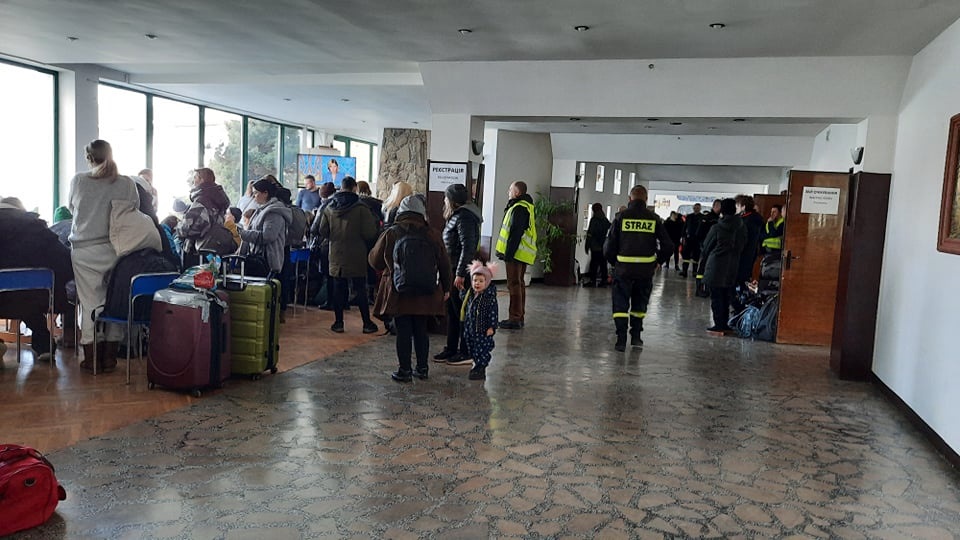
Frankly, I don’t know yet what I am going to do at this new place. Besides, the Internet connection is poor here. So, the most I can do is to search for medicines and food, help with transportation of people, and search for information about the accommodation for refugees in different countries, which I do together with like-minded people in our NGO. I understand Polish and I speak English. If there are no Ukrainian-speaking volunteers, I help refugees with the information.
My daughter got through the evacuation more or less fine. She just got a toothache and a runny nose. I am glad that I managed to take my daughter away, and she didn’t experience any bombing and sleeping in the shelter. All she had heard was the volley of automatic gunfire and the roar of the jet fighter passing above us.
Almost a week-long trip – and we are with our friends in Germany
Ksenia, Donetsk – Kyiv – Dortmund
The evacuation for my son and me started on Tuesday, March 1, and ended on March 7. During these days, we made the trip from Kyiv to Vinnytsia to the Transcarpathian region to Budapest to Munich to Dortmund.
Since the second day of shelling in our cities and in Kyiv, I knew that I would have to take Vovka away. Moreover, I had an invitation and full support from my friends who were persistently suggesting our coming to them to Dortmund. I delayed the decision-making moment as much as I could; besides, I couldn't take my son, who was running a fever, anywhere, and I had only enough gas for about 140 km.
But one day I filled up my gas tank, went to the deserted town, and saw checkpoints and entrances blocked with concrete blocks, tires, and God knows what else. I saw people with machine guns, empty houses. Vovka’s fever broke, and he started flinching nervously every time he didn’t see me near him: “Mom, where are you going?”
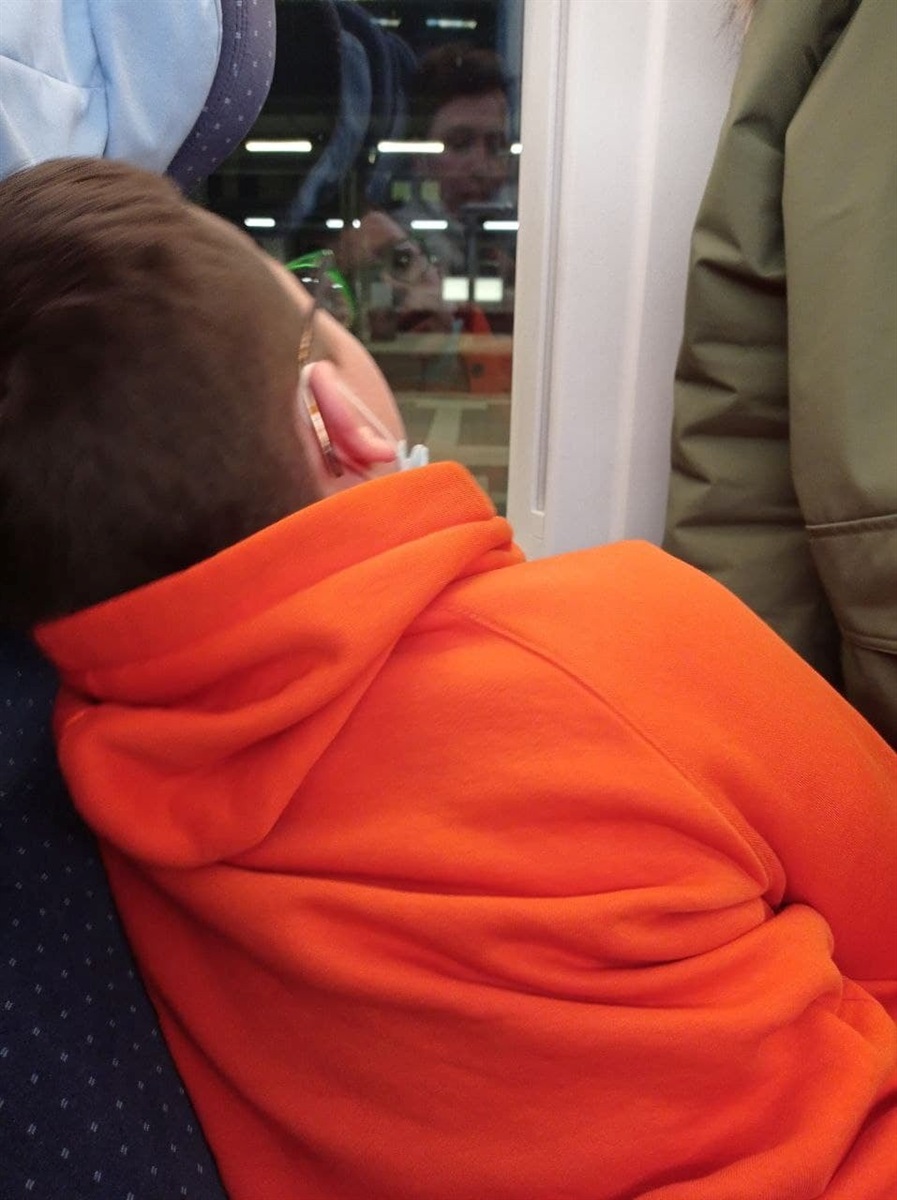
On Tuesday morning, I had a distinct feeling that I had to leave right away. Not tomorrow, not the day after tomorrow – immediately. Having read dozens of messages on social networks about the route and possibilities to get beyond Kyiv, I made several calls, packed a suitcase, a backpack with documents, and packed my notebook.
We had no problems leaving in the direction of Odesa highway, past the burning oil depot, Bila Tserkva (which was shelled an hour later) towards Vinnytsia oblast. We passed dozens of checkpoints, showed our papers, opened the trunk, the suitcases, but there were no big problems as there were two women in the car (I was giving a ride to another woman) and a child.
The first place where we could fill up the tank was in the Vinnytsia region. They had gas there, and they were filling up without any limitation,. We had a chance to go to the restroom and get Vova something to eat. While we were waiting in line, drivers in the cars with local license plates kept giving us advice about spas and refugee centers where we could stay for the night for free. I was very grateful to them. After seven hours of driving (actually, I had never driven more than two hours one way before), we and another family stayed with their acquaintances for the night in a village near Vinnytsia.
Wednesday, March 2. We left in the morning, almost immediately after the end of the curfew. This time it was my son and me, driving by GPS directions towards the Transcarpathian region, skirting Ternopil (huge traffic jams). At this stage, the destination place was a hotel in the mountains (80 km from Mukachevo), where my son and I were to catch our breath, spend a night, plan out our further trip, and go further, just the two of us.
We actually exceeded our expected driving period by five hours, as the mountainous windy roads, snow, and darkness played against us. I was grateful to the guys who replaced me behind the wheel at some point, because after 11:00 p.m. I was just scared I wouldn’t fit into a turn while Vovan was sleeping in the front seat. It was absolutely plausible.
It is noteworthy that the farther west we went, the more the thoroughness of car-checking and the tone of questions changed. Nobody inspected the car and even the papers were not always checked. It was enough to say that you were from Kyiv. While checking the inside of the car, they mainly asked whether there were any men.
On the border with the Transcarpathian region, before the checkpoint, we got into a huge traffic jam. The line was dragging on forever. Men passing the checkpoint were issued military subpoenas so that they would get registered in Uzhhorod within three days and join the territorial defense troops. Then they were allowed to drive farther.
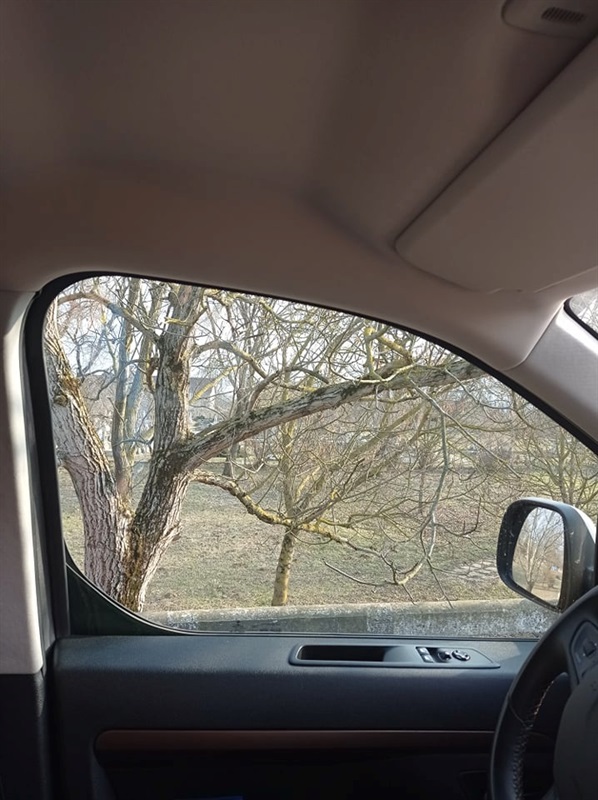
Thursday, March 3. On this day, I had to take one of the hardest decisions in my life and move towards Europe with my son. After breakfast, a liter of tears, and a lot of persuading from my relatives to stay in Ukraine for another week or two, I called a friend in Dortmund who helped me plan my route for the next day. I gave up the idea of driving farther on the grounds of reason and safety. So, I was looking for a transporter to take us from Uzhhorod or Mukachevo to Budapest.
I considered several options; the departure times and the cost of services (30–40 euro per person) varied. Thanks to a colleague, I managed to get in touch with a trusted transporter. These guys actually work without a fixed fee, just for donations to cover the cost of gas. If you have the money, you can transfer an amount you are comfortable with to their card; if you are penniless, they will transport you for free.
In Budapest, I transferred a certain amount to the card of the transporting company. I traveled light; I was living from salary to salary and had invested everything into the new apartment, but thanks to the honesty and support of my employer, my friends, and my family, I could afford to let my son sleep in a bed and not go hungry. So, during our trip I followed the principle: don’t take the place someone who has it worse than me can take, and share whenever possible.
On Friday morning, my son and I left for Mukachevo. The GPS, which previously said 40 km to my destination, suddenly switched to 80 km along a windy mountainous road. It was a hard and long trip: Vovka got car sick, I had panic attacks because of heights, and the transporter was waiting. Having barely arrived to Mukachevo, I gave the car keys and papers to my friends and got into the transporter’s car. In half an hour, we (three families with children) were brought to Kosyno and dropped off. We were instructed on how we were to pass the procedure and given the coordinates of the second transporter. On the other side, people were waiting to take us to Budapest
When we got to the booth and showed two biometric passports, I had to show my son’s birth certificate as we have different surnames. Then we walked for about 500 meters and repeated the same procedure at the border with Hungary. The line was moving much faster, there was a girl, an interpreter, kids were given chocolate bars right away. Here, right in the street, in a specially allocated place, two employees checked our things and led us to a special bus which was taking refugees to the warming center. When the driver grabbed my suitcase and awfully heavy backpack, it was the first time my lips started quivering.
Five minutes later, we were dropped off. There were volunteers and translators. We got a chance to get warm, to go to the bathroom, to change a child’s diaper, to get some water, paper towels or wet wipes, cookies, sweets, fruit. If you had nowhere to go or you wanted to get a refugee status in Hungary, volunteers helped solve these issues. As we had our destination place, we thanked them for their help and got on a bus which dropped us off at the Budapest Keleti station 3.5 hours later. We needed train tickets to Munich
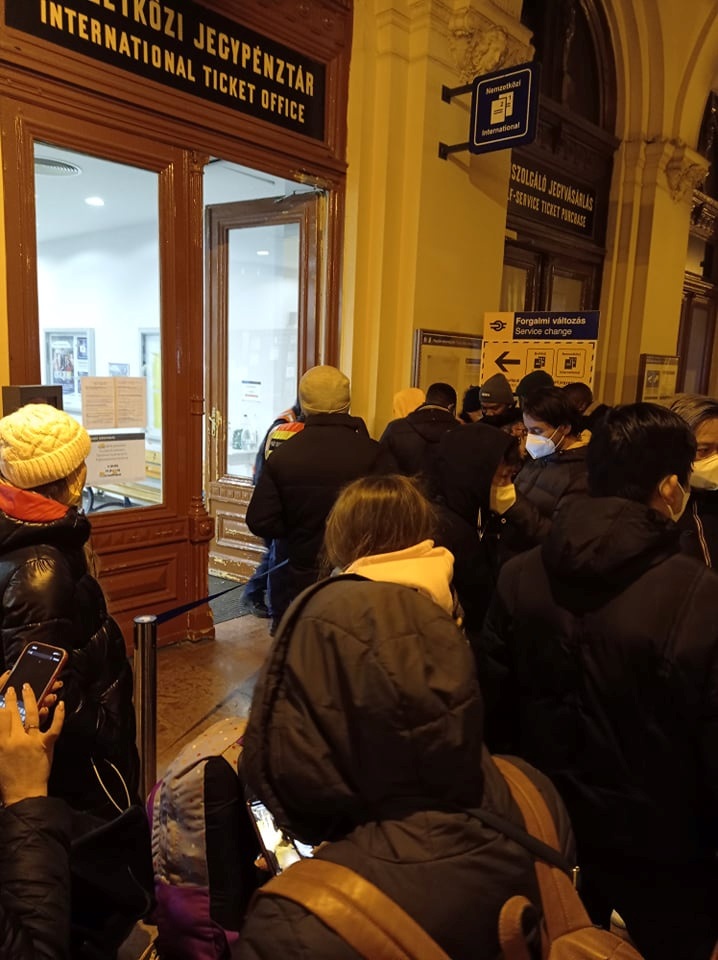
I shouldn’t have worried. There was an enormous number of volunteers inside the ancient Keleti station. There was a free Wi-Fi zone, stands with food, hot tea, coffee, fruit, cookies, and other snacks. Here you could also take paper towels, wet wipes, toothpaste, soap. The most important thing was there were people who offered their help right away and showed me where I was to get in line to buy a ticket (after submitting my papers, the ticket was issued free of charge, but you had to pay 3 euro for fixed seats).
The line was enormous. Just enormous. We stood for two hours and lost any hope of getting on a train to Munich the same evening or night. The volunteers help people who have nowhere to stay find accommodations for the night
On March 5, at 9:50 a.m., we left for Munich, hoping to make it in time to get on the connecting train to Dortmund that evening. We went through Hungary, Austria, and on the German border the train stopped for an indefinite time. The police were checking documents. Many people were taken off the train so that they would continue their way after the registration, on another train. At least that was what the announcement said, which was transmitted in the carriage many times. As far as I understood, it concerned the families where the husband was from a different country or a child didn’t have biometric passports but only a birth certificate.
We were late to arrive to Munich. Here there were constant announcements in Ukrainian on the loudspeaker saying that Ukrainians in need of assistance could address the volunteers at the train terminal. Same as everywhere, they offered sympathy, assistance, consultations, hot tea, sandwiches, and personal hygiene products. Even though we had only one hour till the earliest train to Dortmund, we managed to get the tickets. Now we are with our friends; we are safe.


